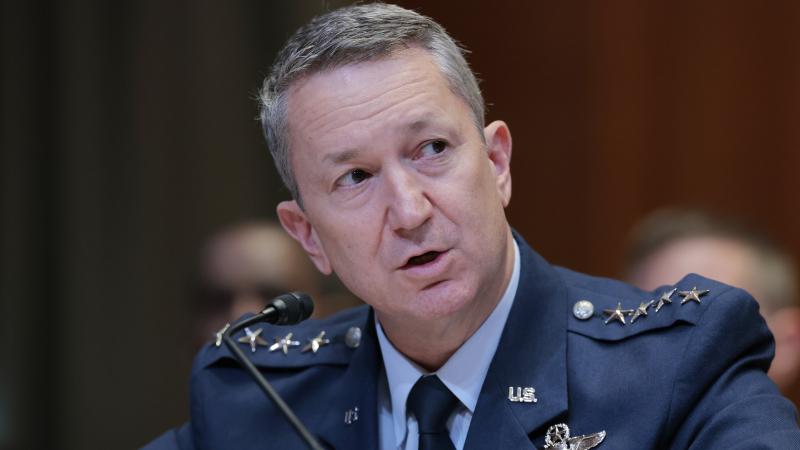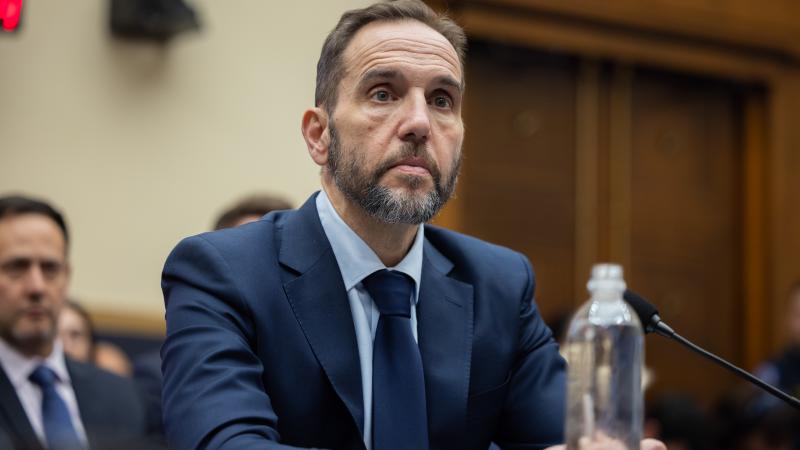Russian-infiltrated Ukrainian intel used FBI to censor social media, House investigators allege
"Put simply, the FBI worked with and on behalf of a foreign intelligence agency—widely known to be compromised by Moscow at the time—and directly abetted efforts to censor Americans engaging in protected speech," they concluded.
As the FBI worked with social media companies to remove alleged Russian disinformation, it appears to have also applied the label to American journalists, anti-Putin activists, and even an official U.S. government account while taking requests from the Ukrainian Security Service, an organization known to have been pervasively infiltrated by pro-Russian actors, lawmakers report.
The House Judiciary Committee's select panel on the Weaponization of the Federal Government on Monday released an interim staff report outlining a censorship pipeline wherein social media platforms fielded requests to block accounts from the bureau, which in turn received the takedown requests from the SBU, which was full of Russian agents at the time.
The takedown requests included at least one official U.S. government account, American journalists, anti-Russian activists, and accounts expressing "unambiguously pro-Ukrainian views." The bureau would, at times, follow up to ensure that the platforms had honored the takedown requests.
Among the biggest of fish was the official Russian-language Instagram account of the State Department, which the SBU requested be removed, alongside a host of accounts for "distribut[ing] content that promotes war, inaccurately reflects events in Ukraine, justifies Russian war crimes in Ukraine in violation of international law."
The report redacted the names of all the accounts on the list except for "usaporusski", which the SBU requested be removed without providing explanation.
While the report redacted the names of journalists whom the SBU identified for takedowns, it pointed to communications between the bureau in which then-Twitter official Yoel Roth identified several accounts flagged as belonging to "American and Canadian journalists." It further asserted that the list of Instagram accounts that included the State Department handle also included an American journalist.
"It is unclear why the Ukrainian government would seek to remove one of the State Department’s verified Instagram accounts," the report continues. "[H]owever, according to President Zelenksyy, the SBU was widely infiltrated by Russian-aligned forces during this period. What is even more astonishing is that the FBI either negligently or intentionally relayed the SBU’s request to remove an official U.S. government account to Meta."
The panel further pointed to other, clearly-pro-Ukrainian posts that the FBI relayed to Meta for removal. Some appeared to be from Ukrainians abroad recounting their experiences in the country, which mostly contradict Russian narratives surrounding the invasion. Some even include obviously pro-Kyiv hashtags such as "#stopputin," "#freeukraine," and "#nowarinukraine."
The report did not allege specific Russian activity in seeking the removal of the content it identified, but repeatedly noted the SBU's state as a "compromised" agency and criticized the FBI for taking such an institution at its word and passing along its takedown requests uncritically.
It explicitly notes Ukrainian President Volodymyr Zelensky's July 2022 firing of the SBU chief due to the pervasive Russian infiltration of the organization. The panel describes the SBU as having been "compromised by a network of Russian collaborators, sympathizers, and double agents."
The panel further highlighted the SBU's status as a successor to the Soviet Union's KGB and its consequentially historical ties to the Russian Security Service (FSB).
Panel members further cited past comments from former SBU Deputy Chairman Viktor Yahun saying the SBU "has long had an overly close relationship with its Russian counterpart, the FSB... Of course there were always [Ukrainian] patriots in the SBU, but they have been in the minority."
They also pointed to the Russian seizure of the Chernobyl nuclear facility in February 2022, which they said reports had concluded was the result of Russian infiltration of the SBU.
"Put simply, the FBI worked with and on behalf of a foreign intelligence agency – widely known to be compromised by Moscow at the time—and directly abetted efforts to censor Americans engaging in protected speech," they concluded. "As a result, the FBI agents' actions had the potential to render substantial aid to the Kremlin’s war effort."
Ben Whedon is an editor and reporter for Just the News. Follow him on Twitter.














